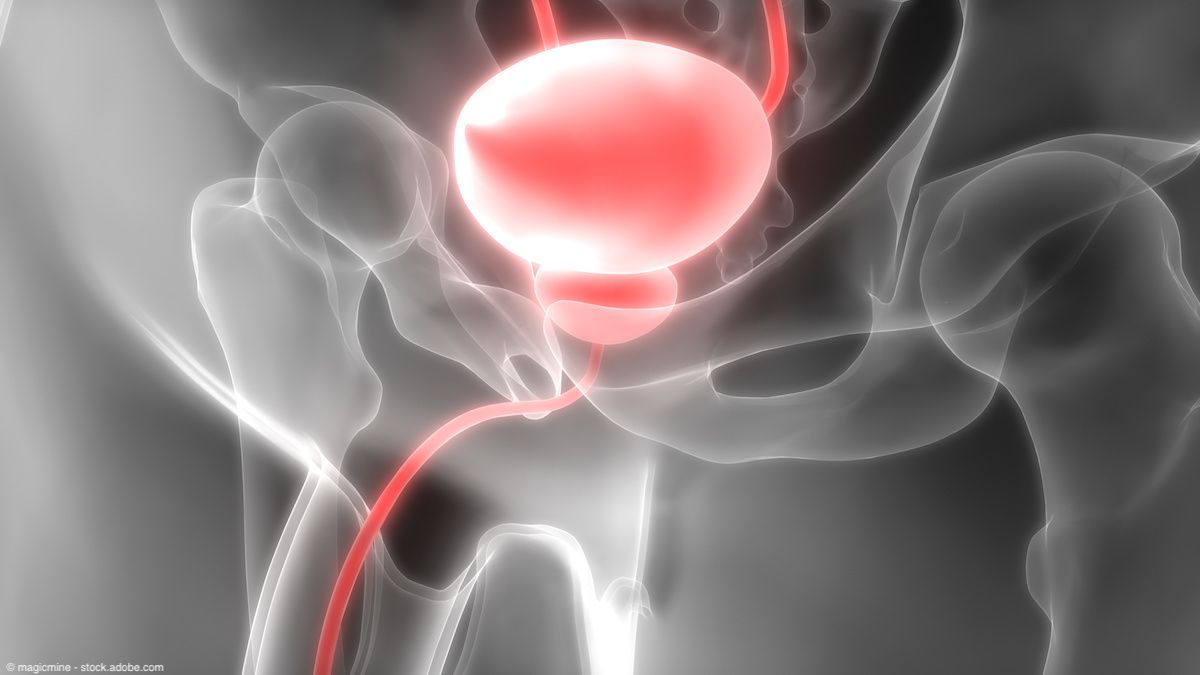Urine-based assay demonstrates predictive efficacy in MIBC
The AssureMDx test demonstrated an area under the curve of 0.80 in detecting urinary tract recurrences in MIBC.
Recent data published in European Urology Open Science demonstrate the efficacy of the DNA-based AssureMDx test in detecting and predicting urinary tract recurrences following bladder-sparing treatment in patients with muscle-invasive bladder cancer (MIBC).1
A positive result on the test was associated with a hazard ratio of 14.8 for the development of a future recurrence.

"There is a pressing need for less invasive methods to monitor MIBC patients after bladder-sparing radiation treatment, accommodating patients' heightened sensitivity while ensuring accurate surveillance for disease recurrence," said Will Lowrance, MD, Chief Medical Officer for Vesica Health, the developer of the AssureMDx test, in a news release on the findings.2 "Our aim is to bridge this gap by providing a noninvasive urine-based solution with AssureMDx, offering both clinical efficacy and comfort in post-treatment monitoring for bladder cancer patients."
In total, the investigators observed 32 urinary tract recurrences—including 3 in the upper tract tumors—among 27 patients. The median time to recurrence was 16 months (IQR, 12-26). Metastatic disease without a urinary tract recurrence was reported in 8 patients. Of the 32 patients with a urinary tract recurrence, 18 had a concomitant urine test available. A total of 108 (76%) patients remained disease-free during follow-up.
Overall, data from the study showed an area under the curve of 0.80 (95% CI, 0.69–0.90) for the urine test. The sensitivity was 78% (95% CI, 52-94), the specificity was 77% (95% CI, 73-81), and the negative predictive value was 99% (95% CI, 97-100). Overall, the test detected 88% (28 of 32) of recurrences following a positive urine test and a negative cystoscopy when taking into account the anticipatory effect of the assay.
The intravesical recurrence rate was 18%, with the test able to accurately identify 14 out of 18 intravesical recurrences.
A positive result on the test was associated with a hazard ratio of 14.8 for the development of a future recurrence (P < .001). A previous recurrence was also associated with an increased risk of developing another recurrence (HR, 8.69; 95% CI, 3.27–23.1; P < .001).
In total, the prospective study included 143 patients with MIBC who underwent bladder-sparing treatment with curative intent, consisting of any type of radiotherapy with or without chemotherapy. Patients were treated between 2016 and 2020. Participants were included in the study analysis if they had non-metastatic MIBC, clinical stage T2 or greater N0M0, and at least 1 urine sample collected during follow-up.
In total, 503 urine samples were analyzed. The median follow-up was 20 months (IQR, 10-33).
The primary end point for the study was a urinary tract recurrence. The secondary end point was the risk of a future urinary tract recurrence following a positive test result and a negative cystoscopy.
Christopher Thibodeau, Vesica Health CEO, concluded in the news release,2 "This study marks a pivotal advancement in bladder cancer surveillance, showcasing AssureMDx's transformative potential. With its robust performance and easy implementation, AssureMDx is poised to revolutionize patient care, ushering in a new era of personalized surveillance."
References
1. de Jong FC, Iflé IG, van der Made AC, et al. A genomic urine assay for surveillance of patients with bladder cancer treated with radiotherapy. Eur Urol Open Sci. 2024;62:131-139. doi:10.1016/j.euros.2024.02.009
2. Vesica Health's AssureMDx: revolutionizing surveillance for bladder cancer patients. News release. Vesica Health. March 26, 2024. Accessed March 27, 2024. https://www.prnewswire.com/news-releases/vesica-healths-assuremdx-revolutionizing-surveillance-for-bladder-cancer-patients-302100115.html
Prostate cancer genomic tests show prognostic value for progression, therapy benefit
April 22nd 2024"This preplanned ENACT trial biomarker analysis demonstrates the value of the Decipher score, AR-A score, and PAM50 genomic classifiers in identifying patients undergoing AS who are most likely to benefit from enzalutamide treatment," wrote the authors.
Personalized therapeutic approaches in ccRCC remain challenging
April 15th 2024"As a kidney cancer community, we need to investigate these molecular subtypes prospectively in clinical trials to determine whether specific subtypes benefit from certain therapies or not," says David A. Braun, MD, PhD.
Dr. Xu on why biomarkers are needed for individualized treatment approaches in RCC
April 5th 2024“Systemic therapy for RCC has changed very quickly. Every year, it's exciting to see that we're getting new developments, new drug approvals, and changes in the standard of care,” says Wenxin (Vincent) Xu, MD.
